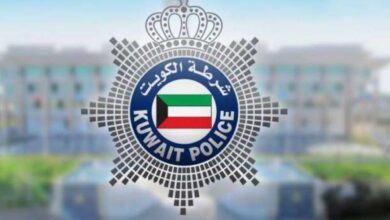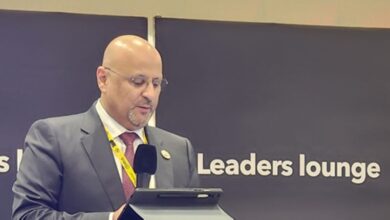Al-Rubaian targets surge in five stagnant specializations
The head of the Civil Service Bureau revealed that a meeting will be held on the 9th of this month to explain the nature of work in ministries to them, after which they will be nominated for positions.

-
The Civil Service Bureau will begin discussions with relevant authorities to reconsider and enhance incentives for rare specializations that citizens do not readily pursue, such as chemistry, physics, philosophy, and medical assistant specializations.
-
Approximately 700 citizens holding technical diplomas in manufacturing technology will be nominated to work as assistant engineers for contracts, safety, and environment in the upcoming batch this month.
Dr. Issam Al-Rubaian, head of the Civil Service Bureau, disclosed that the Council of Ministers has instructed a halt to appointments in organizations offering special cadre and financial benefits. He mentioned that a study is underway to standardize financial benefits across ministries, entities, and government institutions, the Al Anba newspaper reported.
He indicated in an interview on Kuwait TV that the bureau will begin discussions with relevant authorities to reconsider and enhance incentives for rare specializations that citizens do not readily pursue, such as chemistry, physics, philosophy, and medical assistant specializations.
Al-Rubaian announced that he has directed ministries to request the shift allowance for employees, whether engineers, teachers, or others, to enhance the attractiveness of all ministries as employers.
He stated that approximately 700 citizens holding technical diplomas in manufacturing technology will be nominated to work as assistant engineers for contracts, safety, and environment in the upcoming batch this month.
He also mentioned the nomination of political science graduates, a field with limited demand, for positions as editors across ministries in the next batch.
Al-Rubaian explained that for the specializations of industrial, chemical, and petroleum engineering, which were categorized as stagnant, job description cards have been created to appoint environmental engineers and project managers.
He also revealed that a meeting will be held on the 9th of this month to explain the nature of work in ministries to them, after which they will be nominated for positions.
The head of the bureau emphasized that registration and employment nominations are automatic and cannot be altered by any official, including himself.
Al-Rubaian announced the availability of 25 services from the bureau on the ‘Sahel’ application to expedite services for citizens. He noted that citizens are received every Tuesday with the bureau’s undersecretary present, and the reception hall accommodates 400 to 450 visitors daily.
He highlighted the current demand in the job market for specialties such as medical engineering, pharmacy, artificial intelligence across all fields, and cybersecurity.
He also noted sufficiency in the field of dentistry, emphasizing the need to steer liberal arts and humanities disciplines towards practical roles in social services and psychology.
The head of the bureau stressed that available job opportunities outnumber job seekers, and delays are attributed to three reasons. These include certain jobs being unpopular among Kuwaitis, such as teaching specializations, health roles like nurses and assistant doctors, as well as positions in endowments, imams, and muezzins. Additionally, people often have preferences for specific entities.
Al-Rubaian pledged, “From now on, no graduate will be appointed except within their specialization or for jobs requiring a general university degree. Engineering specializations are available across all ministries, and they will receive unified cadre and financial benefits across all government agencies, including allowances such as shift, road, and night allowances based on the nature of the work.”
He noted the challenge of matching job opportunities to candidates’ preferences due to limited capacity in each ministry and emphasized, “An engineer will only be appointed in their field of expertise, and an accountant will only be appointed to accounting roles.” However, administrative transactions coordinators will be appointed for roles requiring appropriate university degrees.
He added that specializations like history and philosophy have been nominated for administrative transactions coordinators or historical researchers without any waiting period currently.
He also discussed the benefits of the fingerprint system applied to all, ensuring the rights of 350,000 employees, facilitating accurate attendance records, and ensuring timely disbursement of end-of-service benefits to expatriates.
Dr. Issam Al-Rubaian revealed that government agencies have the right to choose the method of applying the fingerprint, as long as it is electronic and verified. Some agencies have proposed verifying fingerprints via telephone. He also discussed the decision concerning employees’ rights to local education.













